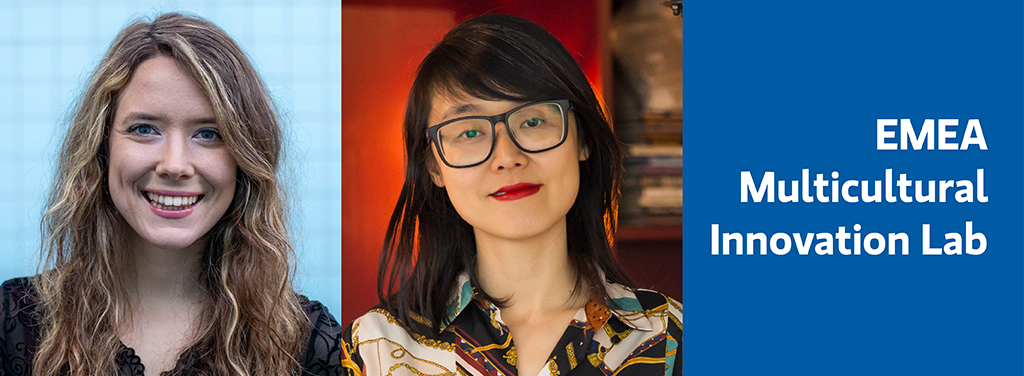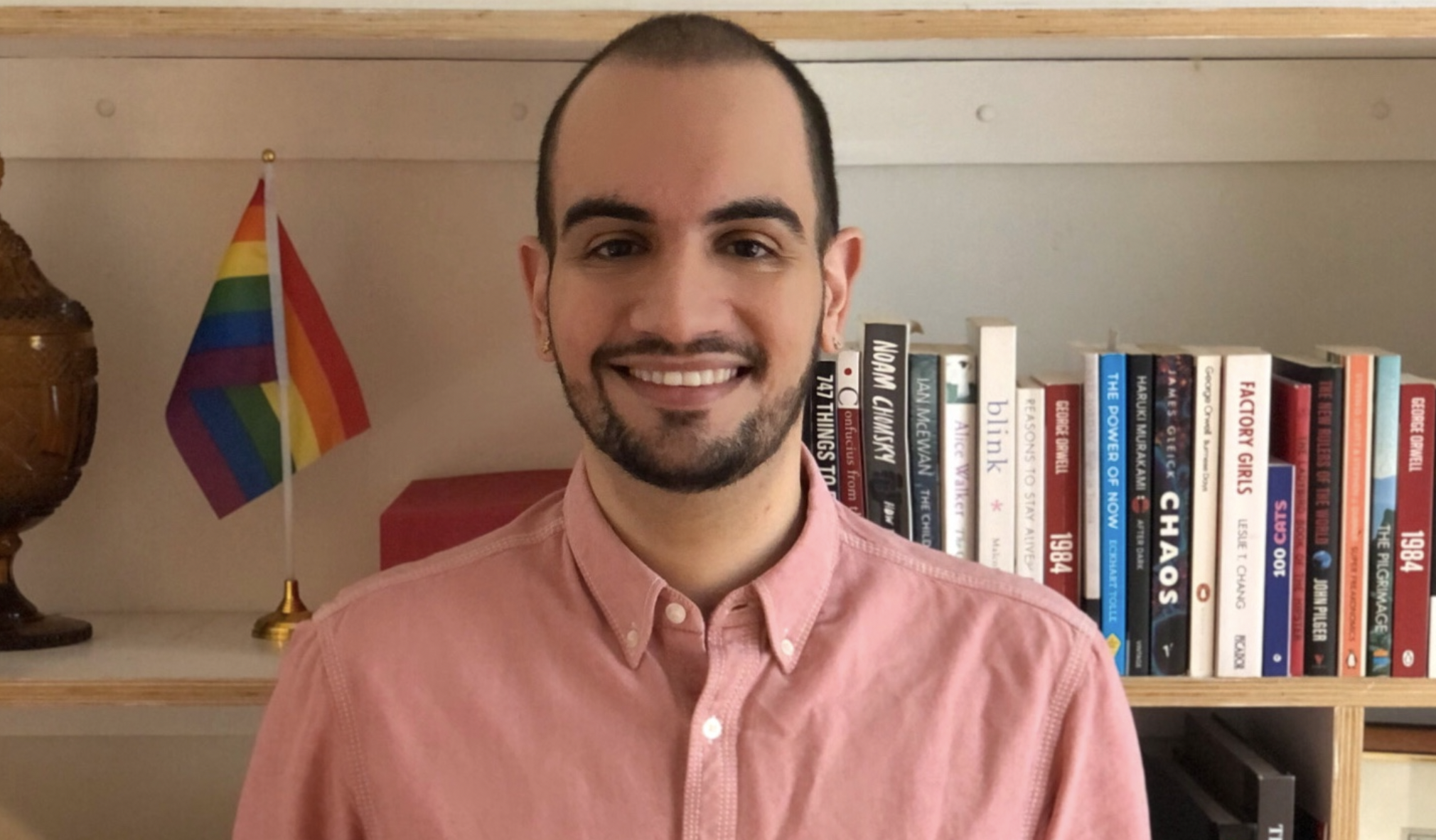Last year, VC investment in Europe passed $100bn for the first time. But, according to Atomico’s State of European Tech report, just 1.1% went to women founders.
It’s similarly bleak for multicultural founders. In the UK, Extend Ventures found just 0.24% of venture capital went to teams of Black entrepreneurs between 2009 and 2019. Out of those, only one Black woman founder raised Series A funding across the 10-year period.
These stats have been repeated in the press — Sifted included — but has anything changed?
We spoke to diverse founders and top investment firm Morgan Stanley about why intersectionality is the best approach to close the funding gap in VC — and why it’ll lead to better returns for founders and investors.
What is intersectionality?
Intersectionality is the acknowledgment that various social identities — including race, gender, sexuality and class — contribute to disadvantage and discrimination. In venture capital, this translates to a big funding gap for diverse founders that isn’t based on a lack of skills or entrepreneurship.
Ideas come to everyone, and so it’s actually the lack of access and opportunities that these founders face where there’s a mismatch
“There’s a massive funding gap,” Sanghamitra Karra, EMEA head of multicultural client strategy at Morgan Stanley, tells Sifted. “Ideas come to everyone, and so it’s actually the lack of access and opportunities that these founders face where there’s a mismatch.”
Jenny Tsai, founder and CEO of influencer marketing solutions provider Wearisma, says one thing she’s experienced as a diverse founder is different questions from investors.
“You do need to think about potentially unconscious bias or perceptions in the questions you get asked,” she says. “You go into an investor meeting and people ask you your age for example. And if you’re a female founder, people may be wondering, especially if you’re a sole founder, what sort of ‘life plan’ you have ahead.”
More diversity, more returns
But close the gap and Morgan Stanley found diverse entrepreneurs hold the key to a trillion-dollar market. Just in the UK, up to £250bn of new value could be added to the UK economy if women started and scaled new businesses at the same rate as men.
Intersectional diversity of the founding team actually tends to mean that they have a broader range of innovative ideas and a broader range of resilience when a crisis hits them
“Intersectional diversity of the founding team actually tends to mean that they have a broader range of innovative ideas and a broader range of resilience when a crisis hits them,” says Karra. “We’ve seen research of various types, particularly in the public markets, where you tend to see that diverse teams have more stable returns in the long term.”
Erika Brodnock, cofounder of Kami, a platform that helps working families, agrees.
“If you start to look at the real magnitude of investing in somebody that not only has the grit and the determination that comes with being a founder of colour, but also the empathy and some of the business acumen that often goes undetected in female entrepreneurs, you end up with a real win-win situation for investors,” she says.
The people with power
The returns are clear, so why do investors keep missing out? And how can an intersectional approach change a systemic problem?
One of the most important factors that could improve the fundraising experience of diverse founders is also diversifying the VC industry
For Dora Palfi, cofounder and CEO of coding platform Imagi, intersectionality in investment means diversifying who has positions of power in funds.
“One of the most important factors that could improve the fundraising experience of diverse founders is also diversifying the VC industry,” she says. “That is more diversity among the decision-makers, and even more funds started and led by people from diverse backgrounds.”
Adaora Oramah, founder and CEO of AMAKA Studio, a digital media platform for pan-African women to amplify and share their stories, agrees, adding this shouldn’t be achieved in a superficial way.
“It’s not just the funds that say ‘oh we really believe in diversity’,” she says. “Who are the people in power in those impact funds? Who will be able to make those executive decisions? Who will understand the importance of intersectionality?”
A 2021 survey by the British Venture Capital Association found that women held just 13% of senior investment roles in UK VC firms, while a study on funding in the CEE region from the same month found that 81% of funds in the region had no female general partners. The data is even worse for multicultural VCs.
Because of this, Jane Lucy, CEO of carbon reporting tool Perse, says diverse founders often end up with a limited pool of investors.
“It’s common to read advice to founders about choosing your investors carefully. But I think particularly for female founders it can be a choice between accepting an investor or not having funding,” she says. “It can even mean the risk of personalities in the business who aren’t perhaps the best match with the founding team.”
The (slow) rise of diverse investors
But it’s getting better — for women at least. There are now over 300 female VC partners in Europe.
When you celebrate successes from different founders that tends to normalise what, in an investor’s mind, the companies that can be successful
Brodnock says it’s now easier to find allies within investment, specifically angels.
“It has been much easier to find people who are allies, who are committed to starting to change the face of venture capital and the face of tech founders,” she says. “Angel investors are starting to change the way in which diverse founders are able to get their first foot on the ladder.”
Tsai attributes some of this to more coverage of diverse entrepreneurs.
“The media and the press actually play a huge role in highlighting the different kinds of successful companies and whom they’re led by, whom they’re founded by,” she says. “When you celebrate successes from different founders that tends to normalise what, in an investor’s mind, the companies that can be successful.”
The Multicultural Innovation Lab
Putting intersectionality into practice, Morgan Stanley formed their Multicultural Innovation Lab (MCIL) in New York back in 2017. Last year, the lab expanded to Europe, the Middle East and Africa, and the first cohort of five startups was announced this month.
“We’ve done about 59 companies in the last five odd years, who have gone on to raise over $150m after they completed the customised, five-month programme,” says Karra.
Historically, the financial industry has been one of the worst offenders of boys' club culture. But, for firms like Morgan Stanley, that’s changing. Diversity is a priority for its senior leadership with "Commit to Diversity and Inclusion" one of the bank’s guiding core values.
I can be a Black female and a parent and all of the things that I am, and I can still run a successful business, but I just can’t do it alone
While the firm has been addressing its internal diversity, the MCIL breaks new ground by providing resources to support traditionally underfunded founders — and to catalyse change on an institutional level.
“I can be a Black female and a parent and all of the things that I am, and I can still run a successful business, but I just can’t do it alone,” says Brodnock. “The Multicultural Innovation Lab offers a support network.”
Karra says while it’s one thing to be able to get investors to give money, it’s another thing to be able to provide access to knowledge, access to institutions and people.
“Having been successful in their candidate process and completing due diligence with such a respected global financial institution gives others immediate confidence in our abilities,” says Lucy. “It’s like a stamp of approval that we can leverage.”

For additional information on the Morgan Stanley Multicultural Innovation Lab and to sign up to their newsletter, please visit their website.




